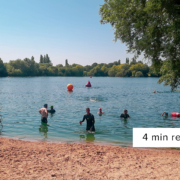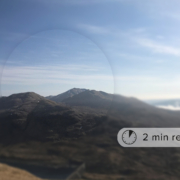Faster, Higher, Stronger – Together
It might be a year later than billed but the Olympics certainly delivered when we needed it to.
With around 11,000 athletes across 206 countries, competing in 339 different events from 41 sports (including 5 new additions), the Olympics really has something for everyone and Great Britain has become accustomed to Olympic success.
Beijing 2008, 51 medals – 19 gold. London 2012, 65 medals – 29 gold. Rio 2016, 67 medals – 27 gold.
This time around UK Sport set a target of 45 – 70 medals and Team GB did not disappoint.
While they’ve consistently delivered at the Olympics, there’s so much more to many stories than just the medal at the end – we’ve highlighted a handful which captured our attention this Olympic summer.
#teamgreatknitting
Tom Daley – Thrust into the spotlight in 2008 in Beijing when he was 14, he’d yet to win gold. Now 27, Tokyo would be his fourth attempt. His dive won gold, his knitting won the internet. Tom learned to knit before the Olympics to help him stay calm – it seemed to work as, with the gold and bronze medals he picked up in Tokyo, he became the first Team GB diver to win four Olympic medals. He’s certainly the first to knit a cardigan while waiting for his next event.
BMX girls have a lot of fun
Beth Shriever – 2017, drops out of the British Cycling programme due to no funding for women’s BMX. 2021, Olympic BMX champion. With no funding from UK Sport, Beth worked as a teaching assistant and used crowdfunding to help get her to the Olympics. She returned to the cycling programme in 2019. She returned home from Tokyo in 2021 with Team GB’s first Olympic gold medal for BMX.
Worth her weight in silver
Emily Campbell – There was a little wobble of the knees, a steadying smile and then a beep. Britain had its first ever female Olympic weightlifting medallist as Emily won the silver medal. Only five years ago Emily hadn’t done any weightlifting and was working full-time with children with special educational needs. With no funding, she worked and received help from her community. Fast forward to 2021 and we have our first female Olympic weightlifting medal.
The Sky’s the limit
Sky Brown – At 13, the youngest professional skateboarder in the world. Sky had to overcome two huge obstacles to even make it to the Olympics, a life-threatening crash and her reluctant parents. In spring 2020, Sky suffered fractures to her skull and broke both her left wrist and hand after falling from a skate ramp. Just one year later and, after failing her first two runs, Sky landed the kickflip indy on her final attempt. As with the first two runs she slid down the bowl on her hands and knees, but this time she slid with joy. Had the Olympics taken place as planned in 2020, Sky likely wouldn’t have made it. 2021 she’s Team GB’s youngest ever Olympic medal winner.
Overall Team GB brought home an impressive haul of 65 medals from Tokyo, with 22 golds, 21 silvers and 22 bronze medals.
Of course we cheer all our athletes on for the win, but for some even the taking part is an achievement which shouldn’t go unnoticed.
As the closing ceremony ends and Tokyo passes the Olympic baton to Paris – we wait to see what 2024 has in store for Team GB, not just in terms of medals but also the story behind it.
Over to you Paralympics – in the words of Jonny Brownlee – “Olympics? Completed it.”




 Planning a big day of hillwalking can be great, and it’s brilliant to have something to look forward to. But even just getting out of the house for a trek round the block can help boost your mood and improve your
Planning a big day of hillwalking can be great, and it’s brilliant to have something to look forward to. But even just getting out of the house for a trek round the block can help boost your mood and improve your 